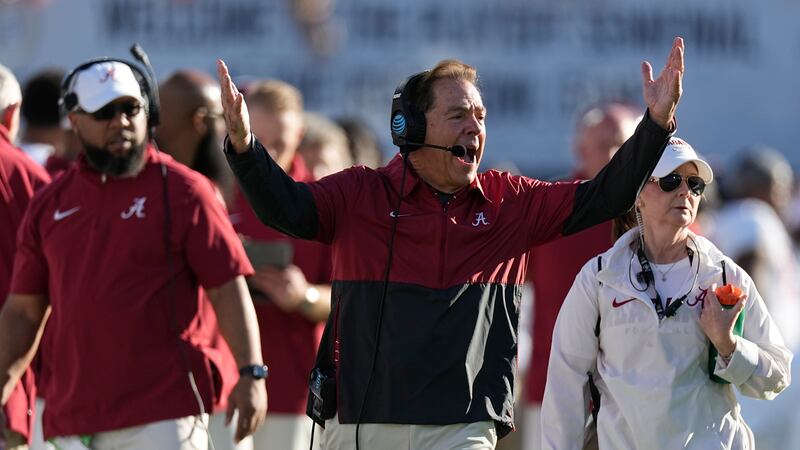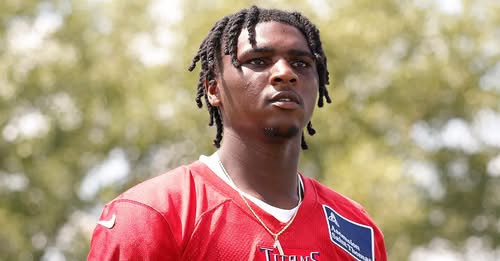Beyond Championships: Nick Saban Says He’s ‘Most Proud’ of Character, Community and Resilient Teams’ Transformation
When Nick Saban announced his retirement from coaching, the sports world paused to reflect. Seven national championships, a dynasty built in Tuscaloosa, an unmatched recruiting run, and a legacy of defensive dominance—these are the numbers and accolades that easily define Saban’s career on the surface. But for the man himself, none of that is what he cherishes most. For Saban, the defining source of pride from his time at Alabama isn’t a trophy or a win percentage. It’s the impact he made on people.
As he’s often said in interviews since stepping away from the sidelines, what he values above all else are the relationships he built, the lives he helped shape, and the long-term outcomes for the young men who played for him. It’s not about how many rings sit in a glass case, but how many players walked away better men. That, he insists, is the part of his Alabama tenure that matters most.
When asked directly what he’s most proud of from his time as head coach, Saban doesn’t hesitate to point to the development of his players as human beings. He emphasizes their growth off the field—academically, personally, and professionally. For someone known for his exacting standards and intense focus on performance, this might seem surprising. But for those who know Saban well, it’s completely in character. At his core, Saban always saw football as a vehicle for something bigger: a platform to prepare young men for life.
Saban often talks about how only a small percentage of college football players go on to have long NFL careers. The rest have to build their lives through education, discipline, and personal growth. That’s why he took such pride in seeing hundreds of his players graduate during his time in Tuscaloosa. For Saban, every diploma meant as much as a championship. It wasn’t just about helping athletes win games—it was about setting them up to win in life.
One of the numbers he mentions most often is the total degrees earned by his players during his tenure. Over 600 players graduated under his leadership. That fact sticks with him more than any single play on the field. He recalls seeing athletes arrive as uncertain freshmen and leave as confident men with direction and purpose. Those transformations are the moments that stayed with him most deeply.
But it wasn’t only what happened in classrooms or football meetings that mattered to him. It was the way his players grew in their values and actions. Many of his former athletes went on to build charitable foundations, support their communities, and become role models for others. Saban often recounts the early days of Alabama’s community service efforts—like building homes through Habitat for Humanity—and how those moments of giving back shaped his team’s culture. He believes those experiences instilled something lasting in his players: a sense of responsibility beyond themselves.
He reflects with pride on the players who returned to Alabama later in life just to thank him—not for playing time or wins, but for holding them accountable, teaching them discipline, and showing them what it meant to care about others. That’s the kind of feedback Saban says he treasures most. It affirms that the tough love, structure, and expectations he brought to the program had a deeper meaning than winning football games.
Saban’s time at Alabama will always be remembered for dominance on the field. But when you listen to him speak now, what emerges is the story of a teacher and mentor who used football to create leaders. He coached Heisman winners, first-round picks, and Hall of Fame talents, but the moments he recalls most fondly often involve players whose names didn’t make headlines. It’s the stories of walk-ons who became captains, of struggling students who earned degrees, and of troubled teens who found their path. Those are the success stories that linger in his heart.
He also frequently references his first few seasons in Tuscaloosa and the overwhelming support he received from the Alabama fanbase. He still talks about the memory of walking into Bryant-Denny Stadium for his first spring game and seeing nearly 95,000 fans packed into the stands. It wasn’t just a sports spectacle—it was, for him, a sign of the belief people had in what they were building together. That collective trust meant everything to him. It was the foundation upon which the program’s future was built.
Even in seasons when Alabama didn’t win it all, Saban found immense pride in how his teams responded to adversity. He speaks with particular affection about the squads that were counted out early in the year but fought back through resilience and toughness. For Saban, those were the teams that embodied the very values he tried to teach. They may not have ended the year with a championship, but they demonstrated growth, unity, and grit—qualities far more important in the long run.
He often mentions the 2011 team that lost a regular-season game to LSU but rebounded to win the BCS National Championship in a rematch. Not only did that team win, but it did so in historic fashion—completely shutting out LSU and never letting them cross the 50-yard line. That performance wasn’t just about domination; it was a product of discipline, focus, and mental strength, all things Saban holds above athletic talent.
But even greater than game-day achievements was the culture Saban built. From the very beginning, he instilled what he called “The Process,” a philosophy centered on doing things the right way, every day, with full commitment to excellence. That mindset became a cornerstone not only of Alabama football but of sports culture in general. Yet Saban always insisted it wasn’t about perfection—it was about persistence. Teaching young men to focus on daily habits, personal accountability, and long-term goals was his real mission.
Now, looking back, he doesn’t see his legacy as a stack of national titles, but as a movement. A movement that elevated not just a football program, but countless lives. He takes particular pride in watching his former players become fathers, husbands, and professionals who contribute positively to society. It is this multi-generational impact that he sees as his greatest achievement.
Saban’s influence extended well beyond the locker room and into the community. Whether through his charitable foundation or the example he set for civic responsibility, he modeled a style of leadership rooted in service. He and his wife Terry helped fund housing projects, education initiatives, and children’s hospitals. Those acts of giving weren’t for show—they were part of the same message he gave his team: your success means little if it doesn’t uplift those around you.
In retirement, Saban remains active as an ambassador for the sport and the university, but he seems most fulfilled by the role he now plays as a mentor from the sidelines of life. He still hears from former players, many of whom seek advice not on blitz packages or coverages, but on parenting, business, and navigating adulthood. That, to him, is proof that what they built at Alabama went far deeper than football.
Ultimately, the pride Saban carries doesn’t rest in any trophy case. It lives in the people. In the young men who entered his program searching for structure and left with a sense of purpose. In the fans who supported the journey from day one. In the children who look up to the players as heroes and see more than just athletes. In the example set by a coach who believed that greatness was found not in the final score, but in how you played the game—and how you lived your life afterward.
So when Nick Saban says he’s most proud of the character his teams built, the relationships he formed, and the lives he touched, believe him. Because in the end, that’s the legacy that truly lasts. The banners will fade, the records may be broken, but the impact he made on people will echo for generations. That, more than anything, is what Alabama’s greatest coach will be remembered for. And that is exactly how he wants it.



